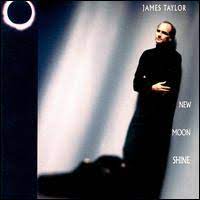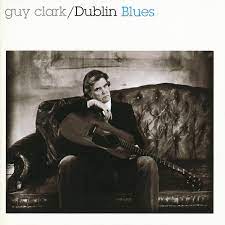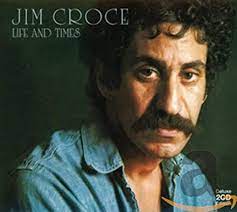Best Of John Denver Songs
On The Acoustic
Here on my best of John Denver songs page you'll find a collection of demos and full lesson tutorials available along with several free chord sheets in pdf. format.

Dec 31st, 1943 – Oct 12th, 1997 (Age 53)
Baby You Look Good To Me Tonight
Back Home Again
Catch A Butterfly
Fly Away
For Baby For Bobby
Friends With You
Goodbye Again
Grandma's Feather Bed
I'm Sorry
Leaving On A Jet Plane
Matthew
Poems Prayers & Promises
Rocky Mountain High
Sunshine On My Shoulders
Sweet Surrender
Take Me Home, Country Roads
Tenderly Calling
This Old Guitar
Best Of John Denver Songs
Demos, Lyrics, Rhythm Tips, Tutorials
Annie's Song

Annie's Song is a special and famous song by John Denver. He wrote it in 1973 when he was on a ski lift in Colorado and feeling inspired by the beautiful scenery and his deep love for his wife, Annie Martell.
The song talks about his love for Annie using words about nature, like a night in the forest and filling up his senses. "Annie's Song" became really popular and went to number one on the charts in the United States. People around the world liked it too, making it one of John Denver's most well-known songs.
Because it's so romantic, many couples choose it for their weddings. Other artists also liked the song, so they covered it in different styles. Even though the song brought a lot of success to John Denver, he sometimes felt it overshadowed his other work. Nevertheless, "Annie's Song" is still loved today for its sincerity, emotional feelings, and beautiful melody, showing the lasting impact of John Denver's music.
- Drop D Tuning: No
- Capo: No
- Rhythm: down down up down up and repeat
- Picking: Yes
- Chords: D, G, A, Bm, A/Db, Bm/A, D/Gb, Em, A7, A7sus
Chords & Lyrics
Jump To Top
Baby You Look Good To Me Tonight
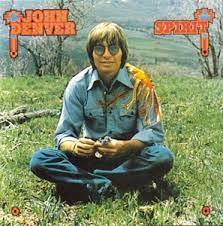
Baby You Look Good To Me Tonight is a song featured on his 1976 album "Spirit." Despite not being released as a single, the song adds a lively and upbeat touch to the album.
In this particular track, Denver explores a joyful and affectionate theme, expressing admiration for a romantic partner. The "Spirit" album itself is notable for its diverse musical styles, showcasing Denver's versatility by blending elements of folk, country, and pop.
While "Baby, You Look Good to Me Tonight" may not be as well-known as some of Denver's hit singles, it has its own charm appreciated by fans. The song's lively and feel-good atmosphere contributes to the overall uniqueness of the "Spirit" album. Even though it did not receive widespread attention, it has gained recognition among dedicated John Denver enthusiasts who value the hidden gems within his discography.
- Drop D Tuning: No
- Capo: No
- Rhythm: root down up down up down up
- Picking: No
- Chords: G, Am, D, C, G6, Am/G, D7
Chords & Lyrics
Jump To Top Of Best Of John Denver Songs
Back Home Again

Back Home Again was recorded for John's 1974 album of the same name. This song is a warm and nostalgic piece that reflects Denver's love for the comforts of home and the people who make it special.
The lyrics capture a sense of belonging and the joy of returning to familiar places. "Back Home Again" became one of Denver's well-loved tracks, resonating with listeners for its heartfelt simplicity and emotional resonance.
The song became a
significant part of Denver's legacy, and its title track contributed to
the success of the "Back Home Again" album. The album itself achieved
commercial success, and this particular song has endured as a timeless
representation of John Denver's ability to convey the warmth and
emotions associated with the concept of home.
- Drop D Tuning: Yes
- Capo: 2nd fret
- Rhythm: root down up root up down up and repeat
- Picking: No
- Chords: D, G, A7
Chords & Lyrics
Jump To Top
Catch A Butterfly
Catch A Butterfly ... info soon.
Chords & Lyrics
Jump To Top
Fly Away
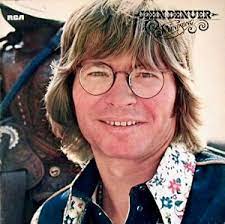
Fly Away is a collaborated song with the late Olivia Newton-John and featured on his 1975 album "Windsong." This enchanting duet captures the essence of freedom and the desire for exploration.
The lyrics convey a sense of breaking free and soaring above, complemented by the harmonious blend of Denver's and Newton-John's voices. "Fly Away" is a standout track on the "Windsong" album, showcasing Denver's talent for crafting songs with a mix of folk and country influences.
The song highlights Denver's ability to collaborate with other talented artists, adding a unique dimension to his body of work. The "Windsong" album, where "Fly Away" resides, received acclaim for its musical diversity and thoughtful themes, making it a significant chapter in John Denver's musical legacy.
- Drop D Tuning: No
- Capo: No
- Rhythm: 1-2-3 up down up down up where 1-2-3 are notes within the chord
- Picking: Yes a little
- Chords: G, Am, D, Bm
Chords & Lyrics
Jump To Top Of Best Of John Denver Songs
For Baby For Bobbie
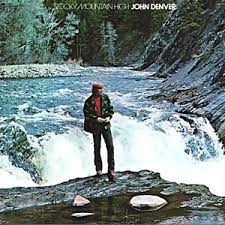
For Baby For Bobbie is a track from the 1972 album Rocky Mountain High. The album debuted on September 15, 1972, and it achieved considerable success, reaching No. 4 on the Billboard 200 chart.
"For Baby (For Bobbie)" is a heartfelt track that resonated with listeners, showcasing Denver's folk and country influences. The single itself didn't chart as it was never released as a single, but its emotional depth and beautiful melody made it a fan favorite.
Notably, the album "Rocky Mountain High" is celebrated for its title track, which became one of Denver's signature songs. The success of this album played a crucial role in establishing John Denver as a prominent figure in the folk and country music scene of the early 1970s.
- Drop D Tuning: No
- Capo: No
- Rhythm: root down up root up down up
- Picking: Yes
- Chords: C, G, D
Chords & Lyrics
Jump To Top
Friends With You
Chords & Lyrics
Jump To Top
Goodbye Again
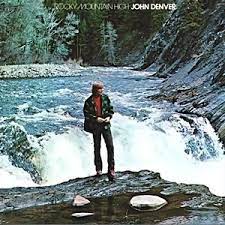
Goodbye Again is also a track from John Denver's 1972 album "Rocky Mountain High." While it is a noteworthy and well-received song from the album, it was not released as a single.
Despite not being released as a single, "Goodbye Again" remains appreciated by fans as part of the overall musical landscape of the album.
The success of the "Rocky Mountain High" album was primarily driven by the popularity of its title track, which became one of John Denver's signature songs.
- Drop D Tuning: No
- Capo: No
- Rhythm: 1-2-3- up down up down up where 1-2-3 are arpeggio notes in the chord
- Picking: No
- Chords: G, D/Gb, Em, C, Am7, D7, Bm
Chords & Lyrics
Jump To Top Of Best Of John Denver Songs
Grandmas Feather Bed
Grandma's Feather Bed ... info soon
Chords & Lyrics
Jump To Top Of Best Of John Denver Songs
I'm Sorry
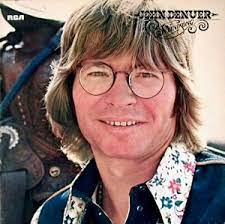
I'm Sorry hails from his album "Windsong," released in 1975. The album made its debut on September 19, 1975, and it achieved notable success, reaching No. 8 on the Billboard 200 chart.
"I'm Sorry" is a poignant ballad that showcases Denver's heartfelt and sincere style, and it became a significant hit. The single topped the Billboard Hot 100 chart, marking one of John Denver's most successful songs.
Notably, "Windsong" is
recognized for its diverse musical styles, including folk, country, and
pop influences. The success of both the album and the single "I'm Sorry"
contributed to Denver's standing as a prominent figure in the music
industry during the mid-1970s.
This was a #1 hit for John Denver in Canada.
- Drop D Tuning: No
- Capo: No
- Rhythm: 1-2-3 up down up down up where 1-2-3 are arpeggio notes in the chord
- Picking: a little
- Chords: G, Am, D7, C, D, D/Gb, Em, Em/D, C, G6
Chords & Lyrics
Jump To Top
Leaving On A Jet Plane
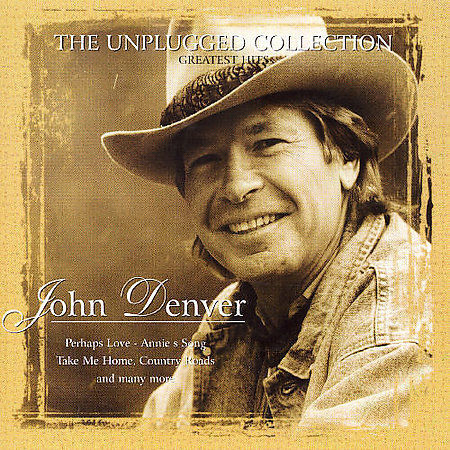
Leaving On A Jet Plane is a well-known song by John Denver, but interestingly, it wasn't featured on one of his solo albums.
The song was written by John Denver in the mid-1960s and was performed by the folk group Peter, Paul and Mary. It became a massive hit for them, topping the charts in 1969.
While John Denver didn't include the song on any of his solo albums, he later recorded his version, which was posthumously released in 1997 on the album "The Unplugged Collection, Volume One."
Denver's rendition captures the emotional depth of the song, and it remains a timeless piece in his discography. The original version by Peter, Paul and Mary, however, is the one that achieved significant chart success and is widely associated with the folk music movement of the 1960s.
- Drop D Tuning: No
- Capo: No
- Rhythm: root down up root up down up and repeat
- Picking: Yes
- Chords: G, C, D, D7
Chords & Lyrics
Jump To Top Of Best Of John Denver Songs
Matthew

Matthew is a touching song by John Denver featured on his 1974 album "Back Home Again." Released on June 24, 1974, the album achieved notable success, securing the top position on the Billboard 200 chart. This track however was never a single release.
The heartfelt track exemplifies Denver's storytelling prowess, unfolding the emotional narrative of a father and son. Despite not being released as a single, "Matthew" significantly contributes to the album's impact and Denver's recognition in the folk and country music scenes of the 1970s.
"Back Home Again" as an album is highlighted by its title track, which became one of Denver's signature songs. With a diverse collection of tracks, including the poignant "Matthew," the album played a pivotal role in establishing John Denver's enduring legacy in the music industry.
- Drop D Tuning: No
- Capo: No
- Rhythm: root down up down up down up and repeat
- Picking: No
- Chords: G, Am, D7
Chords & Lyrics
Jump To Top
Poems Prayers & Promises
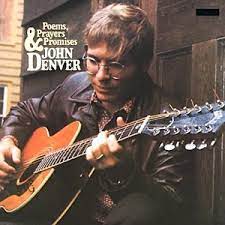
Poems Prayers & Promises is the title track of his 1971 album, released on April 6, 1971. The album achieved notable success, reaching No. 15 on the Billboard 200 chart.
The title track is a reflective and introspective piece that encapsulates Denver's signature blend of folk and country influences. The song resonates with listeners through its heartfelt lyrics and melodic simplicity.
While "Poems, Prayers, and Promises" wasn't released as a single, it became one of Denver's enduring classics. The album's success contributed significantly to Denver's rising prominence in the folk music scene of the early 1970s. Its title track remains emblematic of Denver's ability to connect with audiences through sincere and emotionally resonant songwriting.
Several singles came off of this album which was his breakthrough album, but this track was never a single.
- Drop D Tuning: No
- Capo: No
- Rhythm: root down root up down up and repeat
- Picking: No
- Chords: D, G, A7, Bm, Em, Gbm, Dmaj7, A7sus
Chords & Lyrics
Jump To Top Of Best Of John Denver Songs
Rocky Mountain High
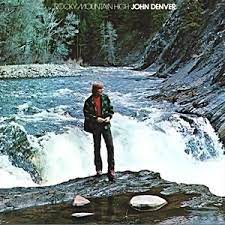
Rocky Mountain High is the title track of John Denver's 1972 album, released on September 25, 1972. The album achieved significant success, reaching No. 4 on the Billboard 200 chart.
The song itself is a celebration of Denver's love for the Rocky Mountains and nature, capturing the spirit of the environmental and countercultural movements of the time. "Rocky Mountain High" became one of Denver's signature songs, known for its uplifting melody and profound lyrics.
While the song did not initially chart as a single, its enduring popularity has made it an iconic representation of Denver's folk and country style. The album's success further solidified Denver's status as a leading figure in the music scene of the early 1970s.
Notably, the song's lyrics led to controversy in the 1980s when it was briefly misconstrued as promoting drug use, highlighting the impact and interpretation of Denver's music. The song eventually peaked at #3 in the US and #2 in Canada.
- Drop D Tuning: Yes
- Capo: 2nd fret
- Rhythm: down down up down up down up and repeat
- Picking: No
- Chords: D, Em, G, A, C
Chords & Lyrics
Jump To Top
Sunshine On My Shoulders
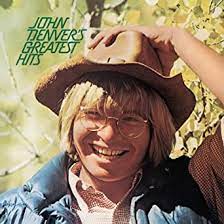
Sunshine On My Shoulders is a notable song by John Denver featured on his 1973 album, "John Denver's Greatest Hits." Released on November 1, 1973, the album quickly became a massive success, reaching No. 1 on the Billboard 200 chart.
The song, characterized by its gentle melody and evocative lyrics, reflects Denver's love for nature and simple pleasures. "Sunshine On My Shoulders" itself became a chart-topping single, reaching No. 1 on the Billboard Hot 100 in 1974.
Notably, the song's success is closely tied to its relatable and optimistic theme, making it one of Denver's most beloved tracks. "John Denver's Greatest Hits" played a crucial role in introducing his music to a broader audience and remains one of the best-selling albums in the United States.
The enduring popularity of "Sunshine On My Shoulders" reflects Denver's ability to connect with listeners through his heartfelt and genuine musical expression.
- Drop D Tuning: No
- Capo: 3rd fret
- Rhythm: 1-2- up down and repeat where 1-2 are arpeggio notes within the chord
- Picking: No
- Chords: G, C/G, Am, D, Bm
Chords & Lyrics
Jump To Top Of Best Of John Denver Songs
Sweet Surrender

Sweet Surrender is a captivating song by John Denver featured on his 1974 album, Back Home Again, which was released on June 24, 1974. The album achieved significant success, reaching the top position on the Billboard 200 chart, marking a noteworthy accomplishment for Denver.
Despite not being released as a single, Sweet Surrender is a melodic and heartfelt piece that exemplifies Denver's distinctive fusion of folk and country influences. The overall success of the album solidified Denver's prominent position in the music industry.
Back Home Again is recognized for its diverse collection of songs, and Sweet Surrender adds to the album's richness with its emotional depth and Denver's sincere vocal delivery. The enduring appeal of Sweet Surrender and the album underscores Denver's ability to connect with audiences through his authentic and relatable songwriting.
- Drop D Tuning: Yes
- Capo: No
- Rhythm: root down up bass up down up and repeat
- Picking: Yes
- Chords: G, D, D7
Chords & Lyrics
Jump To Top
Take Me Home, Country Roads
Take Me Home, Country Roads ... info soon.
- Drop D Tuning = No
- Capo = No (but 2nd fret for original key)
- Rhythm = root down up down up down up and repeat
- Picking = Yes
- Chords = G, Em, D, C, F, D7
Chords & Lyrics
Jump To Top Of Best Of John Denver Songs
Tenderly Calling
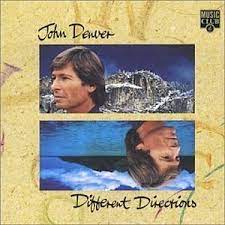
Tenderly Calling is a poignant song by John Denver featured on his 1991 album, "Different Directions." Released in September 1991, the album showcases Denver's continued exploration of diverse musical styles.
While Different Directions did not chart as it was never released as a single, Tenderly Calling stands out as a reflective and introspective track, highlighting Denver's enduring songwriting talent.
The song touches on themes of love and connection, capturing Denver's ability to evoke emotion through his music. Despite the album not reaching the commercial heights of his earlier works, Tenderly Calling remains a testament to Denver's artistic evolution and commitment to expressing heartfelt narratives through his songs.
- Drop D Tuning: No
- Capo: No
- Rhythm: down down up down up and repeat
- Picking: Yes a little
- Chords: C, G, Em, D, A7, Esus, B7, F
Chords & Lyrics
Jump To Top
This Old Guitar

This Old Guitar is a heartfelt song by John Denver, featured on his 1974 album "Back Home Again." Released on June 24, 1974, the album quickly climbed to No. 1 on the Billboard 200 chart, attaining significant success.
The song itself is a tribute to Denver's cherished guitar, celebrating the instrument's role in his musical journey. While This Old Guitar wasn't released as a single, it has become one of Denver's beloved tracks, resonating with audiences for its nostalgic and reflective qualities.
The album "Back Home Again" is celebrated for its diverse collection of songs, and This Old Guitar adds a personal touch, illustrating Denver's deep connection to his music and the instruments that shaped his career. The enduring popularity of both the song and the album underscores Denver's ability to create timeless and emotive music that continues to resonate with listeners.
- Drop D Tuning: No
- Capo: No
- Rhythm: root up down up root up down up and repeat
- Picking: No
- Chords: C, G, Am, Em, F, G6, Am/G
Chords & Lyrics
Jump To Top Of Best Of John Denver Songs
Thank you for dropping into my Best Of John Denver songs page and I hope the information you found here was helpful.
If you liked this John Denver page you might also like ... (click images)
John Denver Biography
Fun Folk Songs To Sing
